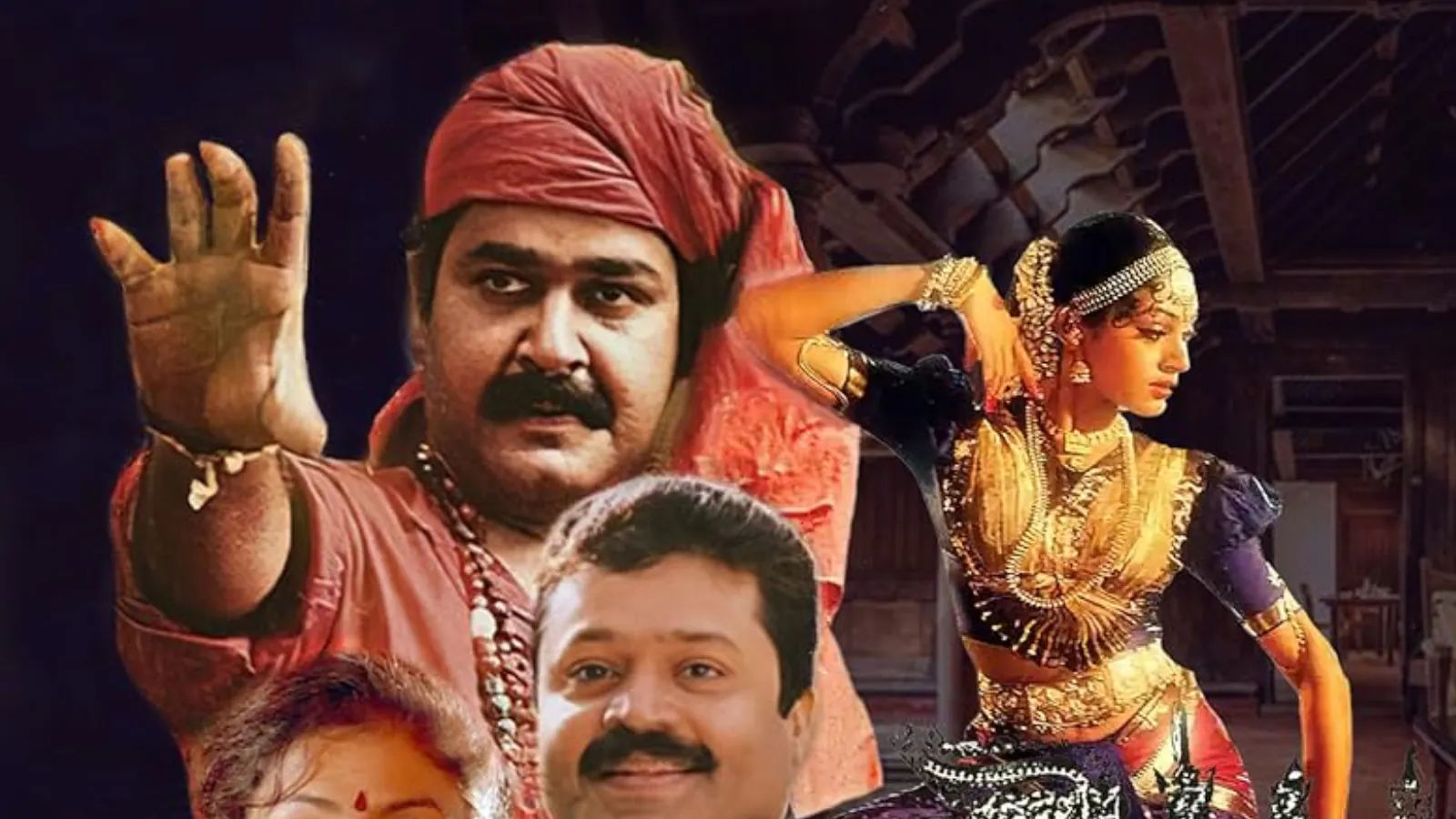Copyright news18

Over the last several decades, Malayalam cinema has seen countless gifted filmmakers who have shaped its identity and global reputation. Yet, one name continues to shine brighter than most, Fazil, the visionary storyteller often hailed as the greatest of all time in the industry. Beyond delivering blockbuster hits, Fazil’s films transformed Malayalam cinema’s standing across India. His legacy, however, is not just about the movies he directed but also about two monumental contributions — one being a film that forever altered Indian cinematic storytelling and the other, an actor who grew to become one of the nation’s most revered talents. Born in Alappuzha, Kerala, Fazil’s father had envisioned a medical career for his son. But destiny had other plans. As cited by The Indian Express, in a 2005 interview with The Hindu, Fazil revealed that he had always been drawn to the performing arts. He wrote and enacted plays in school and college, and was part of what he described as “probably the first mimicry team in Kerala.” His flair for creativity soon caught the attention of professionals in the film industry, marking the beginning of a journey that would later redefine Malayalam cinema. The First Step: From Writer to Director Fazil’s entry into the film world began at Navodaya Studio, where he penned the script for Theekkadal, starring Prem Nazir and Madhu. Directed by Appachan, the film became a success and earned Fazil the opportunity to direct his first movie. With a modest budget and a dream of working with new faces, Fazil began crafting his debut feature — Manjil Virinja Pookkal. Assisted by Appachan’s son Jijo Punnoose, he started auditioning actors for the film, unknowingly setting the stage for Malayalam cinema’s biggest discovery. Mohanlal’s Iconic Debut During the auditions for Manjil Virinja Pookkal, a young man appeared before a panel of four judges. Two of them scored him poorly, 5 and 7 out of 100 but Fazil saw something extraordinary. He gave the newcomer 90 marks, while Jijo gave him 95. That young man was Mohanlal. As destiny had it, one of the judges who had dismissed him was Sibi Malayil, who would later go on to direct Mohanlal in several iconic films. The debut turned out to be historic. Manjil Virinja Pookkal was made on a budget of Rs 7 lakh and grossed Rs 1 crore, a massive achievement at the time. The film also swept multiple Kerala State Film Awards, firmly establishing Fazil as a force to be reckoned with. Building an Empire: Consistency and Creative Brilliance After his sensational debut, Fazil faced a few setbacks with films like Dhanya and Marakkillorikkalum. But he quickly bounced back with the emotionally stirring Ente Mamattikkuttiyammakku, which introduced the immensely talented child actor Shalini to Malayalam cinema. In 1984, Fazil directed Nokkethadhoorathu Kannum Nattu, another milestone that became both a critical and commercial hit. He later remade it in Tamil as Poove Poochooda Vaa, proving once again that his storytelling transcended language barriers. Although Ennennum Kannettante failed to impress in Malayalam, Fazil redeemed himself by remaking it in Tamil as Varusham 16, marking the debut of Khushbu Sundar. Soon after, he returned to form with the Mammootty-starrer Poovinu Puthiya Poonthennal, a movie so powerful that it was remade in six languages, including Tamil (Poovizhi Vasalile) and Telugu (Pasivadi Pranam), the latter starring Chiranjeevi. Films like Manivathoorile Aayiram Sivarathrikal, Ente Sooryaputhrikku (Karpoora Mullai), Pappayude Swantham Appoos and Kilipetchu Ketkavaa cemented Fazil’s reputation as one of the most consistent hitmakers of his time. Manichitrathazhu: A Cinematic Masterpiece That Shook the Nation If there is one film that defines Fazil’s genius, it is undoubtedly Manichitrathazhu (1993). The film is widely regarded as one of the greatest Indian films ever made, combining psychological depth, cultural authenticity, and cinematic innovation. Starring Shobana, Mohanlal and Suresh Gopi, the movie won the National Film Award for Best Popular Film Providing Wholesome Entertainment and Best Actress for Shobana. Its influence spread nationwide through blockbuster remakes like Chandramukhi (Tamil, starring Rajinikanth) and Bhool Bhulaiyaa (Hindi, starring Akshay Kumar). A Master of Reinvention: Introducing New Generations of Stars Fazil’s eye for new talent remained unmatched. With Aniyathipraavu (1997), he introduced Kunchacko Boban and reintroduced Shalini (as an adult actress) to Malayalam cinema. The film became a massive hit and was later remade in Tamil as Kadhalukku Mariyadhai, starring Vijay and Shalini, a film that proved pivotal in cementing Vijay’s rise to superstardom. Collaborating with Icons In 1998, Fazil brought together two of Malayalam cinema’s biggest icons Mohanlal and Mammootty in Harikrishnans, a mystery buddy comedy that also marked Juhi Chawla’s Malayalam debut. The film turned into a blockbuster success, once again highlighting Fazil’s mastery in balancing commercial entertainment with compelling storytelling. A Father’s Dream and a Career Setback Despite his illustrious track record as a filmmaker, Fazil’s effort to introduce his son Fahadh Faasil to cinema through Kaiyethum Doorath (2002) did not yield the expected results. The film was both a critical and commercial disappointment and Fahadh’s performance drew significant criticism at the time. Disheartened, the young actor stepped away from the industry for several years before making a quiet yet promising return. In 2009, Fahadh appeared in a segment of the anthology film Kerala Cafe, where audiences and critics alike noticed a remarkable transformation in his acting abilities. Over the next couple of years, he took on smaller roles in films such as Pramani, Cocktail, and Tournament, gradually rebuilding his presence in the Malayalam film landscape. His real breakthrough came in 2011 with Chaappa Kurishu, a gritty urban drama that showcased his depth and versatility. From there, Fahadh’s career trajectory skyrocketed with acclaimed performances in 22 Female Kottayam, North 24 Kaatham, Oru Indian Pranayakadha, and Take Off. The massive success of Bangalore Days (2014) turned him into one of the most bankable young stars in Malayalam cinema. Films like Kumbalangi Nights solidified his reputation as a scene-stealer, while his daring choices in Super Deluxe, Trance and C U Soon proved his range and willingness to experiment. During the pandemic, Fahadh reached pan-India recognition through acclaimed streaming releases such as Irul, Joji, and Malik. His powerful portrayals in Allu Arjun’s blockbuster Pushpa (2021) and Kamal Haasan’s Vikram (2022) further cemented his standing as a national sensation. The Final Chapters and Enduring Legacy In the years that followed, Fazil directed films like Vismayathumbathu, Oru Naal Oru Kanavu, Moz & Cat, and Living Together. However, none could replicate his earlier success. His last film, Living Together (2011), remains his final directorial outing.



